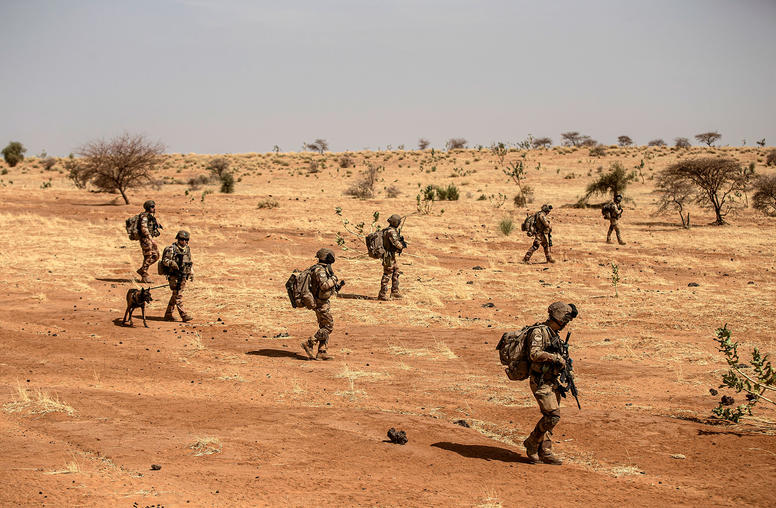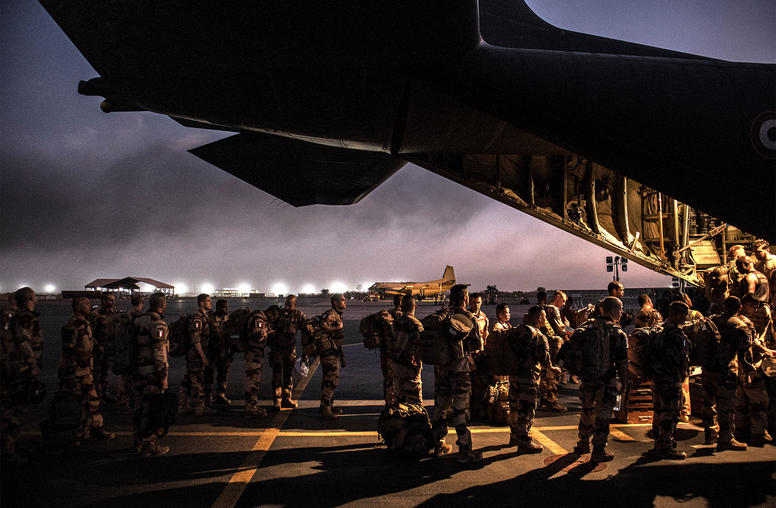Research & Analysis
U.S. Institute of Peace’s articles, reports, tools and other features provide policy analysis, research findings, and practitioner guides. These publications examine critical conflict issues at the center of the Institute’s work to prevent and resolve violent conflict.
The views expressed in these publications are those of the author(s).

Countering Coups: How to Prevent Armed Seizures of Power
Armies have seized power in five states of the greater Sahel over nine months, cementing this African region as the most pronounced center of a global crisis. The Sahel’s military coups d’état are an acute symptom of poor and authoritarian governance that is breeding extremism and transnational criminality, igniting violence and undermining efforts to build democracies. These crises highlight widening security risks for the Sahel’s 135 million people and ultimately for Europe and the United States. Congress has begun urgently needed policy changes that analysts say should now be accelerated to prevent further coups and to buttress stability and democracy.

To Consolidate Democracy, Change U.S. Security Assistance
As the United States pursues its initiative to bolster democratic rule and human rights after last week’s Summit for Democracy, a priority should be to diagnose and repair the flaws in U.S. and allied approaches to helping vulnerable nations strengthen their security. Our existing pattern of security sector assistance focuses largely on training and equipping such nations’ forces, and it emphasizes the security of governments and institutions, rather than of the people they are meant to serve. This type of assistance prioritizes short-term tactical gains to the detriment of long-term U.S. strategic goals—and it should be reformed.

How to Respond to a ‘Year of Coups?’ We Can Try in Mali.
In a year replete with military coups against the principles of democratic rule, this week’s coup in Sudan and a less-noted setback in Mali underscore that U.S. and international policymakers must improve their efforts to support democracy by rebalancing their assistance to fragile states at high risk. Supporting democracy amid this season of coups means targeting that assistance at the root causes of upheaval in regions such as Africa’s Sahel. In part, this means acting quickly—but shifting our focus to long-term stability and human security, rather than simply seeking perceived short-term counter-terrorism gains.

Months After Protests, Nigeria Needs Police Accountability
In Nigeria and more than a dozen nations—the United States, Brazil and Japan are others—public protests erupted in the past year against police brutality. Across the globe, police violence traumatizes the marginalized, spares the powerful and remains unaddressed until the abuse is illuminated to broad public view. While brutality is typically rooted among a minority of officers, it persists because weak systems of police accountability offer impunity, even to repeat offenders. In Nigeria, as in other countries, the solution will require building strong accountability mechanisms—both within police agencies and externally, in the communities they serve.

In Niger, Foreign Security Interests Undermine Stability—What Can Be Done?
Over the past decade, the United States, France, and the European Unionhave drastically increased security assistance to countries in the Sahel region. They have done so to address two perceived transnational threats—violent extremism and mass migration to Europe—but have often neglected Sahel countries’ own interests and long-term stability. Nowhere is this more apparent than in Niger, the world’s poorest country.

How International Security Support Contributed to Mali’s Coup
Since a 2012 coup, Mali has received significant security assistance from United States, France, the European Union and other foreign donors to address violent extremism and insurgency and help stabilize the country. In the wake of the August military coup, it is clear that strategy has backfired—and that, in fact, the failure of international security sector assistance to prioritize governance likely contributed to the conditions that led to the coup.

Five Things to Know About Mali’s Coup
On August 18, rising tensions to boiled over into a mutiny, leading to the resignation of President Ibrahim Boubacar Keita. This dramatic chain of events followed three months of protests, calling for Keita’s resignation. As the country grapples with an intractable insurgency and eight years of instability, anger over the government’s failure to resolve conflict, respect democratic norms, and provide basic services pushed citizens and the military to their boiling point. What comes next in Mali over the coming months could have significant implications for the country’s democracy and on the stability of the Sahel.